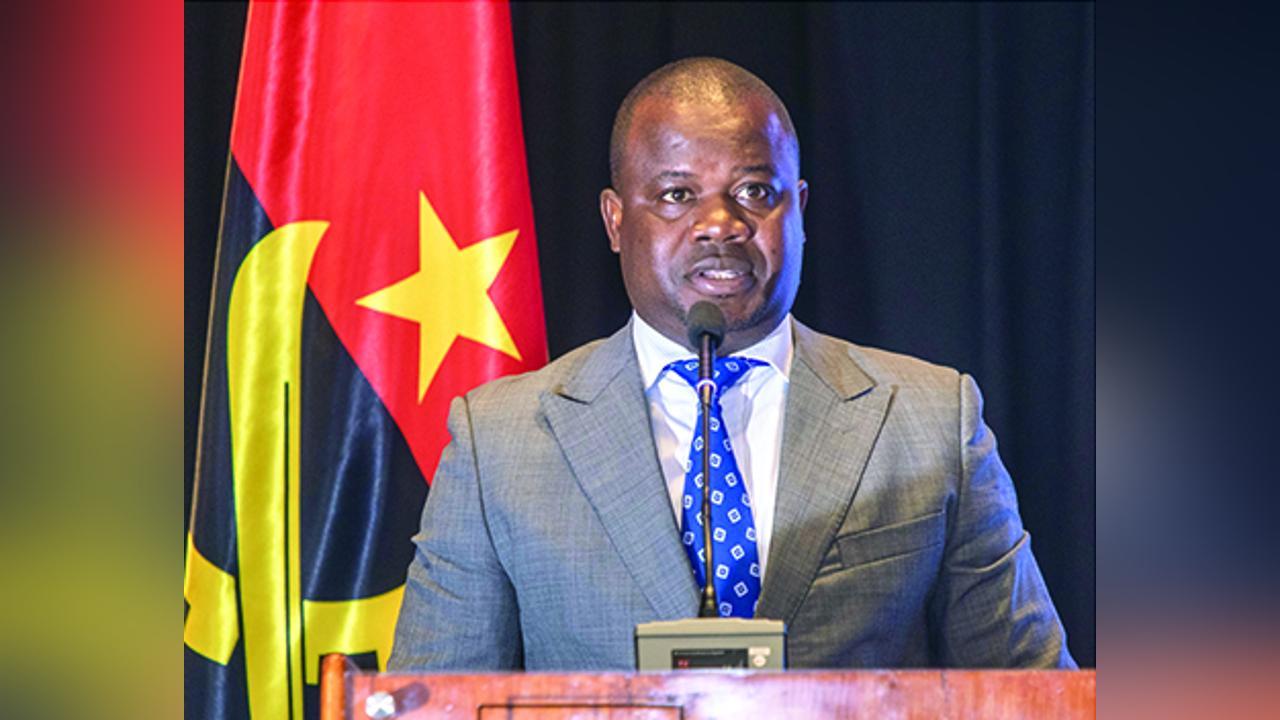Africa-Press – Angola. The Minister of Territorial Administration, Dionísio da Fonseca, reiterated on Tuesday, in Luanda, the Executive’s commitment to administrative reorganization and sustainable territorial development.
The minister, who was speaking on the sidelines of the Seminar for Validation of Urban Planning Options for the Headquarters of the New Provinces of Icolo and Bengo, Cuando and Moxico Leste, recalled the recent approval of the Action Plan for the implementation of the new Political-Administrative Division (DPA), under the guidance of the President of the Republic.
Dionísio da Fonseca said that the Plan includes several actions, including the construction of essential social and economic infrastructures for the functioning of the new provinces. The minister highlighted, among the structural projects presented, the basic infrastructure kit consisting of eight fundamental buildings, such as the provincial governor’s palace, the headquarters of the Provincial Government, ministerial delegations, provincial police command, citizen services, schools, health units, water supply, energy and sanitation systems.
“We are talking about completely new cities, such as Mavinga and Cazombo, where we intend to avoid past mistakes in terms of urbanisation and construction of public infrastructure. The idea is to start with shared public services, given the specificity and needs of these localities, which allows for more efficient management of resources”, added the minister.During the meeting, Dionísio da Fonseca also highlighted the importance of ensuring the inclusive participation of civil society and academia in defining projects, with the aim of ensuring greater adherence to local expectations and realities.
Territorial boundaries and cartographic correction
The Minister of Territorial Administration also addressed the issue of geographical boundaries between the new provinces and municipalities, acknowledging that there are still challenges related to effective demarcation, such as the border areas between Viana and Calumbo.
“At the moment, there are no legal conflicts of jurisdiction between provinces. What is needed is to speed up the placement of border markers, a task that is ongoing at both provincial and municipal level”, assured Dionísio da Fonseca.
According to the Minister, a process of correcting topological errors in maps is also underway, which aims to eliminate territorial overlaps caused by technical errors during cartographic preparation.
The official publication of the new map is expected in the next two to three months. “The ultimate goal is to ensure that all public and private bodies can act on the basis of correct and up-to-date territorial data, aligned with the country’s new Political-Administrative Division,” he said.Infrastructure promotes development
On the sidelines of the seminar promoted by the Ministry of Territorial Administration, the governors of the provinces of Cuando, Icolo and Bengo and Moxico Leste advocated the construction of access roads as a basis for development.
In statements to the press, the governor of the province of Cuando, Lúcio Amaral, said that among the development projects of the new provinces, investment in road infrastructure is the main priority for the region’s progress.
Although he acknowledged the tourism potential of Cuando, with emphasis on the Okavango-Zambezi Cross-Border Project, the governor stressed that one cannot talk about tourism without first guaranteeing viable access.
“In order to bring tourism to those remote lands of the province of Cuando, we first need to have road infrastructure,” he stated.
On the occasion, the governor of the newly created province of Moxico Leste, Crispiniano Vivaldino Evaristo dos Santos, argued that territorial development will only be possible with the creation of basic infrastructures and efficient communication routes.“We are here to materialize the different phases of the implementation of the new Political-Administrative Division, with emphasis on the validation of the urban plans for the cities of Cazombo and Mavinga”, stated the governor, highlighting the importance of this process in fulfilling the aspirations of the population of Moxico Leste.
Crispiniano dos Santos said that the priority of the new provincial administration is to invest in essential areas, such as roads, administrative and housing complexes, schools and hospitals.
“We are defining priorities in terms of the primary needs for the development of the province, with emphasis on improving access roads”.
The governor stressed that the implementation of the projects will be done in a participatory manner, involving the different segments of society. “The documents discussed will be submitted for consideration by traditional authorities, young people and different organized groups, with the aim of contributing to the progress of the province”, he said.Icolo e Bengo and its strategic location
The governor of Icolo e Bengo, Auzílio Jacob, highlighted that the new province has unique comparative advantages to accelerate its development, benefiting from existing basic infrastructure, an abundance of natural resources and a strategic location in relation to the country’s capital.
The governor stated that unlike other recently created regions, Icolo e Bengo offers “more than sufficient conditions” to rapidly boost its growth. “We have water, energy and access to infrastructure, the three fundamental pillars to attract investment and ensure sustainable progress”, he stated.
Auzílio Jacob reaffirmed that the objective is to transform Icolo e Bengo “into a true breadbasket of Angola”, with the capacity to feed the capital and other regions, taking advantage of its water and fishing resources. “We have fish such as cacusso and catfish, in addition to ideal conditions to develop the agro-industry”, he stated.
The meeting, which brought together representatives from various ministerial departments and public entities, aimed to evaluate the draft urban plans for the new provincial headquarters, in an effort to ensure that the projects reflect the real needs of local populations and promote more harmonious development.
jornaldeangola
For More News And Analysis About Angola Follow Africa-Press






